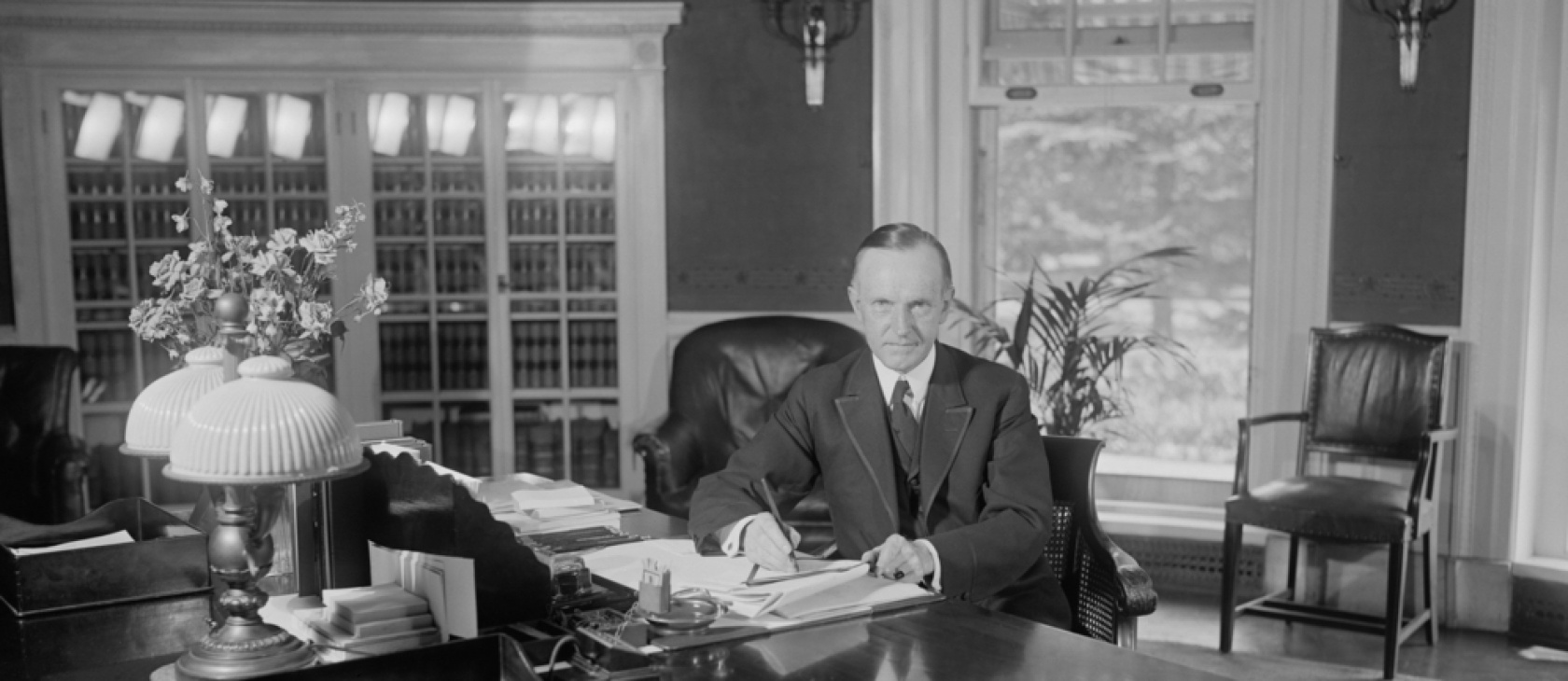Calvin Coolidge had a penchant for silence but when he spoke, he did so with powerful effect. "The words of a president have an enormous weight and ought not to be used indiscriminately,” he once warned. Underappreciated by historians and often marginalized through story and anecdote, the “throwback” president’s stock is on the rise. While it is true that the thirtieth president is due for a major reassessment, the ideas he put forward remain timeless because of his focus on foundational truths.
Silent Cal’s words and legacy speak directly to us and our national ills. Often referred to as the last Jeffersonian president, Coolidge praised limiting the state’s powers as he observed and reacted to the progressive era and the looming New Deal centralization. “These socialistic notions of government are not of my day,” he quipped during FDR’s rise.
Instead, Coolidge believed the progressive man bent on centralization was a stale soul. “Their ideas are not more modern, but more ancient, than those of the Revolutionary fathers,” declared Coolidge. He continually harkened back to America’s Founding, believing that there are fundamental truths about man and his relationship to the state.
While early American debates centered on how important it is that federal power be limited, the progressive era saw the rise of breathless boasts about how much good and abundance could flourish out of unlimited federal power.
Seeing into the future, Coolidge warned Americans that if they thought they were speaking of the federal government when they referred to “the government” it would prove costly. A staunch defender of federalism, he believed local government took precedence when federal power is not specifically enumerated by the Constitution.
Seeing himself as civic educator, he explained: “The men and women of this country who toil are the ones who bear the cost of the government. Every dollar that we carelessly waste means that their life will be so much the more meager.” A glance at the federal debt today makes his case.
While Coolidge often spoke in short sentences full of common sense, there was considerable depth to his conservative views. Lampooned in part because of quotes like, “The chief business of the American people is business,” Coolidge went on to also say in the same address, “Of course the accumulation of wealth cannot be justified as the chief end of existence.”
Sneered at by intellectual elites for being old fashioned and a defender of free markets, Coolidge championed capitalism by personalizing it, rooting work within the dignity of man, and eschewing materialism and greed. He warned Americans against sinking into a “pagan materialism.”
Coolidge oversaw an era of unyielding prosperity for most and unprecedented technological advances, but he knew the citizens of the republic must be rooted in faith. “If we are too weak to take charge of our own morality, we shall not be strong enough to take charge of our own liberty,” said Coolidge. He declared, “We cannot depend on government to do the work of religion.” He simply proclaimed in his brilliant speech on the 150th anniversary of the Declaration of Independence, “The things of the spirit come first.”
Coolidge’s authenticity stands in contrast to most modern politicians and leaders. When his biographer William Allen White expressed frustration with not being able to see the real Coolidge by telling him, “I need to peek at the man behind the mask,” Coolidge amusingly snapped back, “I don’t know if I can help you; maybe there isn’t any.”
After Ronald Reagan’s inauguration, he hung up a portrait of Coolidge in the White House. The Washington press corps snickered at the act. Coolidge however put forward a serious and deep vision for the country. It is a vision that stands in stark contrast with how our government and many of our leaders operate today.
While America experiences crippling debt, moral decay, and decline of purpose, Coolidge’s words and legacy will appeal even more. Fundamental truths are forever new to a society that has lost its way.












